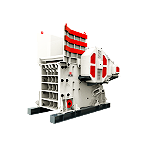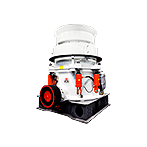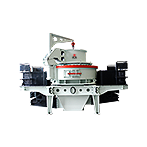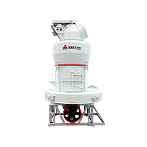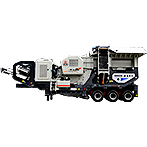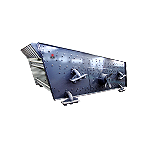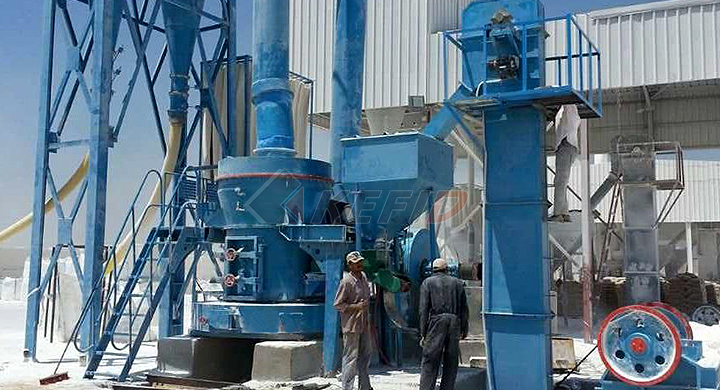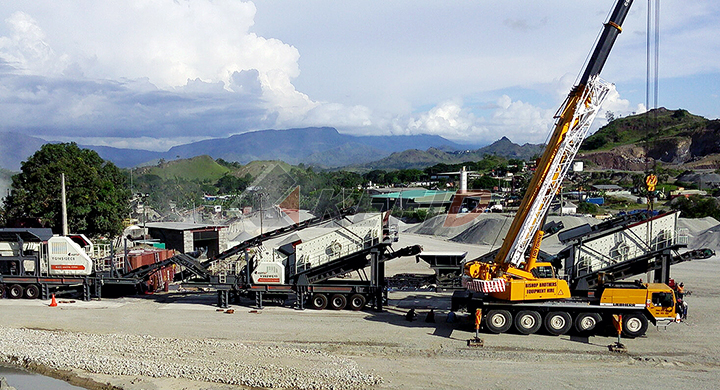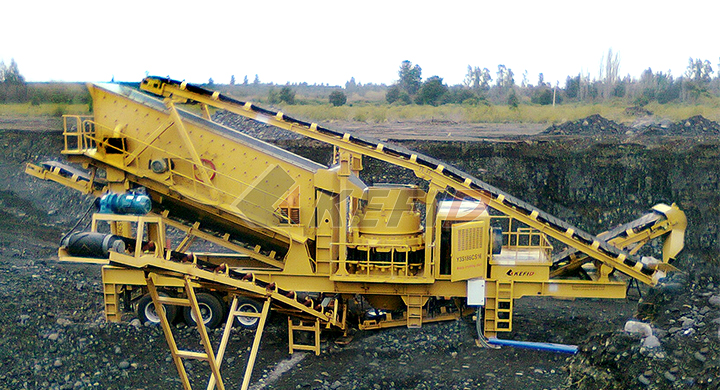магазин
mill footing design
KEFID,Дробильно-сортировочное оборудование Китая высокого качества, стандартное дробильное оборудование. На протяжении более 30 лет мы занимаемся исследованиями и разработками и производством дробильного оборудования, дробления зданий, промышленных дробилок и экологически чистых строительных материалов, и предлагаем профессиональные решения и дополнительные продукты для создания ценность для клиентов.
Онлайн сообщение
mill footing design

(PDF) DYNAMIC DESIGN FOR GRINDING MILL FOUNDATIONS
The dynamic analysis of grinding mill foundation is a typical problem of soilstructure interaction The substructure method is used to carry out the dynamic analysis and design in practiceaffect grinding mill performance but potentially render the mill out of action – thereby costing millions of dollars in lost production The following advice will help ensure the foundation is right before you install a new mill Foundation load specification It is the responsibility of the mill supplier to specify the millBUILDING A SOLID FOUNDATION FOR YOUR MILL

(PDF) DYNAMIC ANALYSIS FOR BALL MILL FOUNDATION
The weakened rock is a challenge to the design of grinding mill foundation in this case Different design options are compared to obtain the better solution, that is, the vibrating amplitudesFooting Design By S Ali Mirza1 and William Brant2 51 Introduction Reinforced concrete foundations, or footings, transmit loads from a structure to the supporting soil Footings are designed based on the nature of the loading, the properties of the footing and the properties of the soil Design of a footing typically consists of the followingChapter 5 Footing Design Engineering

Base and Shelter Ideas for a Bandsaw Mill WOODWEB
If you have a back wall on your shed that is near the mill then, counter to the mill design, it seems the best set up is to load from the off side If you didn't then all the sawdust would end up against the back wall and be hard to clear Blowing the sawdust out of the shed between the mill and the deck would make it easier to clean upJun 19, 2015· The basic parameters used in ball mill design (power calculations), rod mill or any tumbling mill sizing are; material to be ground, characteristics, Bond Work Index, bulk density, specific density, desired mill tonnage capacity DTPH, operating % solids or pulp density, feed size as F80 and maximum ‘chunk size’, product size as P80 and maximum and finally the type of circuit open/closedBall Mill Design/Power Calculation

Footings Example 1 Design of a square spread footing of a
Feb 13, 1971· Footings Example 1—Design of a square spread footing of a sevenstory building Design and detail a typical square spread footing of a six bay by five bay sevenstory building, founded on stiff soil, supporting a 24 in square column The building has a 10 ft high basement The bottom of the footing is 13 ft below finished gradeMILL DESIGN The miller who operated the mill and the millwright who constructed the mill were each masters of milling A miller was expert with his controlling devices: the wheels, shafts gear trains, and the knowledge of how to adjust his massive millstones to less than a wheat grains thickness apart Eleutherian Mills Hagley FoundationHistorically: How to Site a Mill Angelfire

BUILDING A SOLID FOUNDATION FOR YOUR MILL
affect grinding mill performance but potentially render the mill out of action – thereby costing millions of dollars in lost production The following advice will help ensure the foundation is right before you install a new mill Foundation load specification It is the responsibility of the mill supplier to specify the millMILL DESIGN The miller who operated the mill and the millwright who constructed the mill were each masters of milling A miller was expert with his controlling devices: the wheels, shafts gear trains, and the knowledge of how to adjust his massive millstones to less than a wheat grains thickness apart Eleutherian Mills Hagley FoundationHistorically: How to Site a Mill Angelfire

WIND TURBINE DESIGN AND IMPLEMENTATION
i Abstract This project examined the design of a land‐based wind turbine considering various alternatives including soil and foundation type, turbine size and type, tower design, type of site, and wind speedsDeck Footings Learn everything you need to know about installing concrete footings to support your deck We will teach you how to determine the code compliant size of your footings based on the soil type and tributary loads Check out our deck footing frost map to help you understand how deep your footings will need to be excavatedDeck Footings, Foundations & Piers | Decks by Trex

SIMPLIFIED LATERAL DESIGN OF POSTFRAME BUILDINGS
by Drew Patrick Mill MS Washington State University August 2012 Chair: Donald A Bender minimal wall/roof framing materials and footing/foundation materials, postframe construction structural analogs provides the information needed to design the post and post foundationWith this design, in the event of some movement, the mill and foundation will tend to move as a unit ANY SLIGHT SETTLING OF FOUNDATIONS WILL CAUSE BEARING AND GEAR MISALIGNMENT, resulting in excessive wear and higher maintenance costs It has been found that concrete foundations on a weight basis should be at least 1½ times the total weightBall Mill Maintenance & Installation Procedure

foundation design | Wind farms construction
Wind turbines foundation design is an art (and a job) by itself Here you have a very quick overview of the process for shallow foundation (Patrick & Henderson foundation, widely used in the USA, follow a totally different approach) The inputs for the foundation design are the result of the geological survey and the design loadsWind turbine tower is a typical highrise structure building The average wind tower height on earth is around 90m – 130m The wind turbine foundation bears the load transmitted from the wind turbine tower and the turbine on the top, especially the huge overturning moments For onshore wind turbine tower, there are basically 5 common types of wind tower foundations: the shallow matWind Turbine Foundation: 5 Foundation Types Explained

CRSI: CRSI Home Page
Foster the continued growth of reinforced concrete construction Includes downloadable publications, technical resources, and information on the educational foundationA floating wind turbine is an offshore wind turbine mounted on a floating structure that allows the turbine to generate electricity in water depths where fixedfoundation turbines are not feasible Floating wind farms have the potential to significantly increase the sea area available for offshore wind farms, especially in countries with limited shallow waters, such as JapanFloating wind turbine Wikipedia

Section 15 Concrete Reinforcement NYSDOT Home
design and detailing The tables in this section simplify the design and detailing of concrete reinforcement splices and required covers Also included are suggested details intended to ease the construction process and provide seismic resistance 152 Spacing The minimum spacing shall meet NYSDOT LRFD Bridge Design Specification Section 51031Ball Mill foundation design instructing and supervising local Korean engineers Engineering design Steelwork and detailing, engineering design footing forRead more Target Mine Ball Mill | Projects and Industrial Engineering Pty Ltd Project Details : Detailed design of SAG Mill foundation Detailed design of ancillary feed conveyorFoundation Design For Ball Mill mayukhportfolio

Free Online Wind Load Calculator | SkyCiv
Wind Loads are important consideration in structural engineering in the design of a structure Adding to SkyCiv's already list of free tools, is the new Wind Load Calculator for ASCE 710, AS 11702 and EN 1991 (EC1)This easy to use calculator will display the wind speed by location via a wind speed map as prescribed by the above building codesFigure 1 – Excessively thick or thin lumber reflects inefficient mill operation and is a waste of sawtimber resources One way to gage a mill’s efficiency is to measure its ability to cut lumber consistently within specified thickness standards (fig 1) Two basic factors affect lumber sizing accuracy: (1)Circular Sawmills and Their Efficient Operation

BUILDING A SOLID FOUNDATION FOR YOUR MILL
affect grinding mill performance but potentially render the mill out of action – thereby costing millions of dollars in lost production The following advice will help ensure the foundation is right before you install a new mill Foundation load specification It is the responsibility of the mill supplier to specify the millApr 08, 2018· The basic parameters used in ball mill design (power calculations), rod mill or any tumbling mill sizing are; material to be ground, characteristics, Bond Work Index, bulk density, specific density, desired mill tonnage capacity DTPH, operating % solids or pulp density, feed size as F80 and maximum ‘chunk size’, product size as P80 and maximum and finally the type of circuit open/closedBall Mill Design/Power Calculation

Manual design of SAG/ball/rod mill foundations
Mar 14, 2007· You need to work closely with the Mechanical design engineers involved regarding forcing frequencies and the operating frequency ranges for the mill, and will almost certainly need to carry out a full dynamic analysis of the foundation in something like Calculix or ABAQUSby design limits for maximum separation force, torque, Hertzian pressure etc, but these criteria are valid only under so called “normal rolling conditions” and even these change continuously with progressive wear in the contact zone Besides “normal rolling conditions” a stable, theoretical assumption mills experience many differentA BASIC UNDERSTANDING OF THE MECHANICS OF

Historically: How to Site a Mill Angelfire
MILL DESIGN The miller who operated the mill and the millwright who constructed the mill were each masters of milling A miller was expert with his controlling devices: the wheels, shafts gear trains, and the knowledge of how to adjust his massive millstones to less than a wheat grains thickness apart Eleutherian Mills Hagley Foundationthe effect of deflections, resulting from the foundation’s rotational and horizontal stiffness, on natural frequency calculations The general methodology used to transcribe the design of wind turbine towers and foundations into an optimization problem includes: 1) collecting information on design requirements and parameter values 2) deciding howDesign of wind turbine tower and foundation systems

WIND TURBINE DESIGN AND IMPLEMENTATION
i Abstract This project examined the design of a land‐based wind turbine considering various alternatives including soil and foundation type, turbine size and type, tower design, type of site, and wind speedsConstruction of concrete foundation is divided into number of work activities with specific objectives and completion time for each activity is defined For example, marking foundation layout, excavations, base preparation including leveling and lean concrete placement, formwork andActivities in the Construction of Concrete Foundation

CRSI: CRSI Home Page
Foster the continued growth of reinforced concrete construction Includes downloadable publications, technical resources, and information on the educational foundationI built my custom home in Vienna with Bella Home Design The process of building a home requires close partnership with the builder From our experience, Bella was responsive and attentive to all of our questions and requests They have a keen eye for quality and uphold the highest of construction standards Our final product was a combinationhome Bella Home Design

Engineering FAQs | American Institute of Steel Construction
The AISC Specification for Structural Steel Buildings covers requirements for the design of structural steel connections Additional recommendations can be found in the 15th Edtion Steel Construction Manual The FAQs in this section include a discussion of portions of these provisions and subsequent recommendations with regard to general issues in connection design, fabrication, and erectionThe foundation engineer must have a thorough understanding of the foundation loads, subsurface conditions, including soil/rock properties and behavior, foundation performance criteria, and current practices in foundation design and construction in the area where the workTimber Pile Design and Construction Manual

CHAPTER 5: Design of Wood Framing HUD User
Chapter 5 Design of Wood Framing The principal method of design for woodframed construction has historically been allowable stress design (ASD) This chapter uses the most current version of the ASD method (AF&PA, 1997), although the load resistance factored design method (LRFD) is now available as an alternative (AF&PA, 1996a)Width of Foundation / Footings The width of footings should be laid according to structural design For light loaded buildings such as houses, flats, school buildings, etc, have not more than two storeys, the width of the foundation is given below: The width of the footingFoundation Construction [PDF]: Depth, Width, Layout, and
